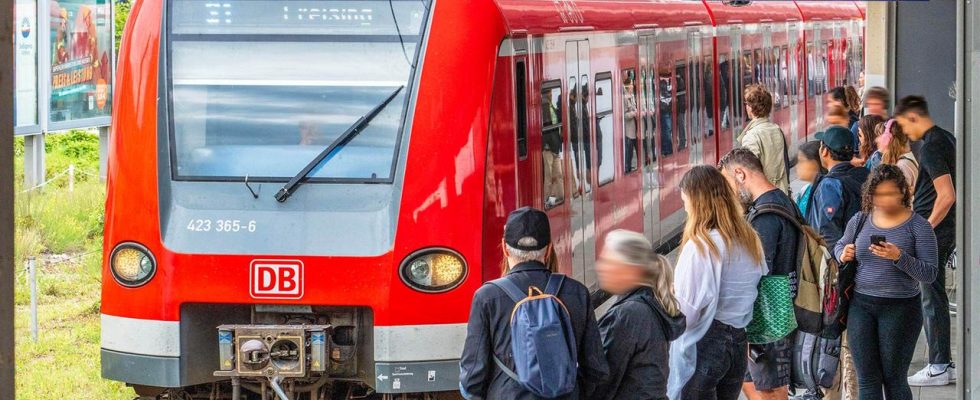With around twelve billion euros, Deutsche Bahn wants to make local transport fit for the future and offer more customer-friendly trains. For the Pro Bahn passenger association, the investment is just the beginning.
Deutsche Bahn wants to invest around twelve billion euros in local transport. By 2030, more than eleven billion euros of this should flow into more modern trains and 900 million euros into new buses, as the state-owned company (DB) announced at the “Zukunft Nahverkehr” trade fair in Berlin.
The exhibition shows “how everyday mobility can be taken to a new level,” said Evelyn Palla, CEO of the group responsible for regional transport. “To do this, we need simple and convenient door-to-door mobility solutions, customized buses and trains, and digital information and ticketing solutions that cover the entire travel chain.” After the launch of the Deutschlandticket, it is now important to increase the range of local public transport.
Sum out loud passenger association not sufficient in the long run
“The investment is a start and it’s good that it was recognized that more money is needed for local transport,” commented Detlef Neuss, Federal Chairman of the Pro Bahn passenger association, in an interview tagesschau.de. “In the long run, however, the sum is not sufficient.” “Much more is needed” than twelve billion euros to establish the Deutschlandticket and thus train travel as a permanent alternative to the car.
Ultimately, more staff are required in the transport companies and larger capacities at the manufacturers. “Electric buses currently still have delivery times of more than half a year,” says Neuß. Therefore, the railway cannot implement its goals directly, but needs time to do so.
“door-to-dooreveryday mobility” as the destination of the train
Driverless on-demand buses, travel companions via app or regional buses with toilets: This week, the Deutsche Bahn trade fair will be looking at the future of local transport in Germany. “We want to get away from the sometimes somewhat outdated and dusty image that local transport has,” said DB board member Palla. “We need a better, more customer-oriented offer that covers entire mobility chains and goes even more into door-to-door everyday mobility.” More digital offerings would also be needed.
There are many plans for the public transport of the future, more digitization and ideas for more service. This includes artificial intelligence such as the chatbot Bowie, which is intended to support customers with travel planning and ticket purchases. In addition, there should be trains that make traveling easier for people with restricted mobility and the senses. More modern buses, which are equipped with WLAN and toilets, are to be used in rail replacement traffic.
Autonomous shuttles from 2025
At the opening of the trade fair, Deutsche Bahn also announced partnerships with manufacturers of autonomous shuttles. With these vehicles, the group wants to connect rural areas better and more flexibly to the nearest train stations. Specifically, DB is planning to work with the companies Schaeffler, VDL Groep and Holon on research and development of autonomous transport.
“From 2025 onwards, the manufacturers will put new vehicles on the road for public transport that are to drive fully automatically,” the statement said. This applies to so-called level 4, in which no driver is required to monitor the system. Prototypes can currently be seen at the partner fair, the IAA Mobility, in Munich.
With information from Till Bücker, ARD finance department.

